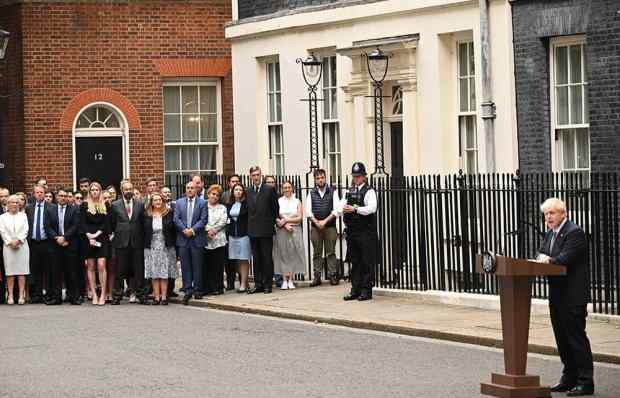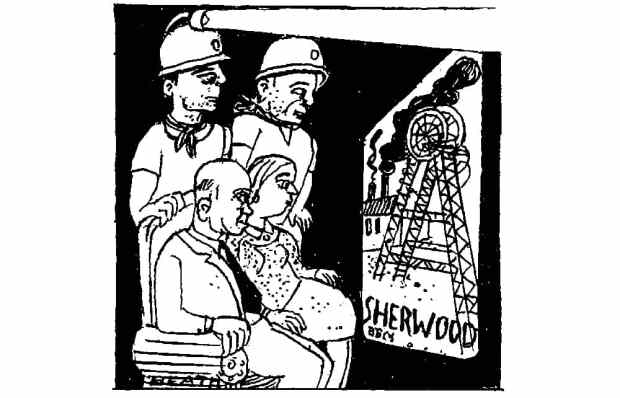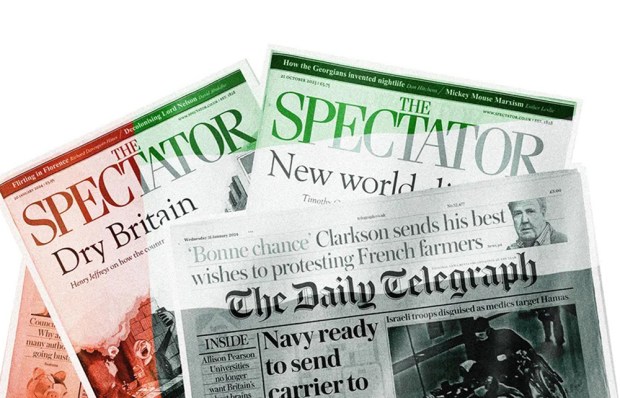Happy 190th birthday, dear Spectator. And in what fine health you are, at such an advanced age. This was hardly inevitable when I joined the magazine, as deputy editor, in 1987. It was just about to mark its 160th year of unbroken losses, a corporate world record which I don’t see being matched by any other business. It was around the second year of my editorship that it began to make a profit. The then chief executive, Luis Dominguez, declared to an amazed board that this unprecedented achievement should be revealed to the world, in the form of a press release. To his evident consternation, I urged them not to agree to this. I argued that we paid remarkably low rates for articles from some of the best writers in the land and that if they discovered we were profitable, they might demand something closer to the vastly higher fees they claimed elsewhere — which would puncture our belatedly buoyant business model. My most un-journalistic argument for the suppression of the facts (and writers’ incomes) met with conclusive approval from the two mighty industrialists on the board, Sir Pat Sheehy, the chairman of British American Tobacco, and Lord (John) King, chairman of British Airways. I felt a mixture of satisfaction and shame.
The greatest pleasure for Spectator editors — or at least this one — is in developing new writers and columns. Among those I was happiest to introduce were Anne Applebaum, Jenny McCartney and Mary Killen. The author of The Spectator’s indispensable Dear Mary social advice column has now achieved global significance via a television programme called Gogglebox. This, I could never have imagined.
I suppose the most well-known of those (then) new columnists is Boris Johnson. In mid-1994 he was at a bit of a loose end, as he had left his berth as Brussels correspondent of the Daily Telegraph, and had not yet been reassigned by his boss, Max Hastings. So I invited Boris to become The Spectator’s political columnist, and each week his copy (when it finally arrived) was a delight. In the light of subsequent events, it is interesting to reread his first contribution, which was about Conservative Eurosceptics: ‘There is a second type, the Euro-Ultras. No names, no pack-drill. They know who they are, in Westminster and beyond. These men and women have black, black hearts… they live in hope… of Britain’s departure from the European Community.’
Boris later became editor. In that capacity he published a bizarre article in 2001, claiming (on the basis of a book published only in Russia) that I had been an MI6 agent operating under the code name of Smallbrow. It was even highlighted on the magazine’s cover, with the strapline ‘Who was Smallbrow?’ Given that the book also suggested that Nelson Mandela was an MI6 agent — -which the then South African president denounced as a ‘disgraceful fabrication’ — I felt I was in distinguished company. Though I still expressed to Boris, perhaps too robustly, my disappointment that he had not sought to warn a previous editor of what he was about to publish about him.
There was, though, a genuine MI6 connection to The Spectator, which I can now reveal. Some readers might recall the column Office Life, which began in 1994, under the name of Holly Budd. In fact Holly was Alan Judd, who said he worked for the Foreign Office, but was widely known to be an MI6 officer. As MI6 was known internally as ‘The Office’, it was a piquant title for a column of watercooler talk based on Judd’s gossip with female members of the secret service (whom he collectively impersonated as Holly). He got permission from his bosses to write the column, but not to turn up in drag at the Businesswoman of the Year lunch, to which Holly Budd had received an invitation, c/o The Spectator. Those were less enlightened times.
It would be invidious to say who the best of Spectator diarists was, but I had a particular fondness for John Osborne. The last time I commissioned the playwright formerly known as Angry was for the Christmas double issue of 1994. In honour of John, I had made the cover a facsimile of a theatrical billboard with him as the top billing: ‘Featuring the One and Only John Osborne and His Diary.’ Then, just before it was to go to press, John’s wife, Helen, called to say he was too ill to file. I told her about the cover. Later that day we received faxed copy, the first item of which read: ‘To be 65 is indeed a misfortune… I am haunted by thoughts of the things I may never do again.’ John died while the issue was still on the streets. Later I discovered Helen had written that last diary, from notes her husband had left around their house in Clun, Shropshire — among what John, quoting Housman, always described as ‘those blue remembered hills’.
Got something to add? Join the discussion and comment below.
Get 10 issues for just $10
Subscribe to The Spectator Australia today for the next 10 magazine issues, plus full online access, for just $10.
You might disagree with half of it, but you’ll enjoy reading all of it. Try your first month for free, then just $2 a week for the remainder of your first year.














Comments
Don't miss out
Join the conversation with other Spectator Australia readers. Subscribe to leave a comment.
SUBSCRIBEAlready a subscriber? Log in